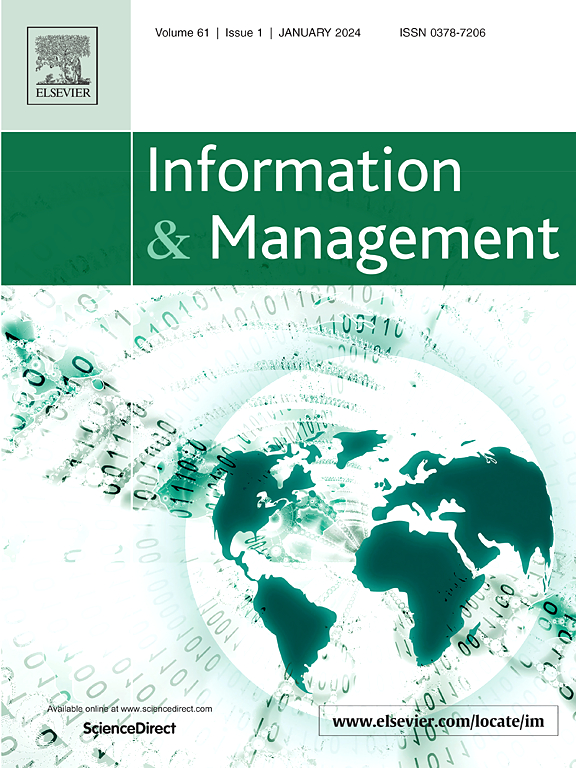我不流利:语言流利程度、新媒体素养和个性特征如何影响社交媒体上的假新闻参与行为
IF 8.2
2区 管理学
Q1 COMPUTER SCIENCE, INFORMATION SYSTEMS
引用次数: 0
摘要
关于导致用户偏见的心理因素,虚假信息研究人员还有很多东西要学。用户在新媒体素养方面的差距以及个性特征都是可能导致偏见的因素。我们进行了一项实验,改变文章语言真实性的水平,以确定这些因素如何影响用户的参与行为。我们发现,新媒体素养较高的用户不太可能接触到低真实性语言的虚假信息。然而,无论文章的语言真实性如何,传统媒体素养较高的用户更有可能接触到虚假信息。本文章由计算机程序翻译,如有差异,请以英文原文为准。
I'm not fluent: How linguistic fluency, new media literacy, and personality traits influence fake news engagement behavior on social media
Disinformation researchers have much to learn about the psychological factors that lead to users’ biases. The gap in users’ new media literacy, along with personality traits, are factors that may contribute to bias. We conducted an experiment that varied levels of articles' linguistic veracity to determine how these factors influence users' engagement behavior. We found that users with higher literacy in new media were less likely to engage with disinformation featuring low veracity language. However, users with higher literacy in traditional media were more likely to engage with disinformation, regardless of the article's linguistic veracity.
求助全文
通过发布文献求助,成功后即可免费获取论文全文。
去求助
来源期刊

Information & Management
工程技术-计算机:信息系统
CiteScore
17.90
自引率
6.10%
发文量
123
审稿时长
1 months
期刊介绍:
Information & Management is a publication that caters to researchers in the field of information systems as well as managers, professionals, administrators, and senior executives involved in designing, implementing, and managing Information Systems Applications.
 求助内容:
求助内容: 应助结果提醒方式:
应助结果提醒方式:


